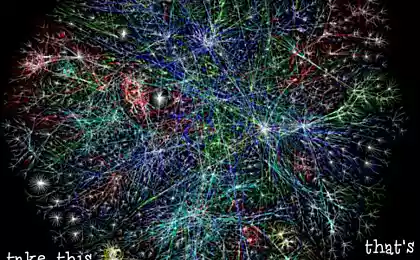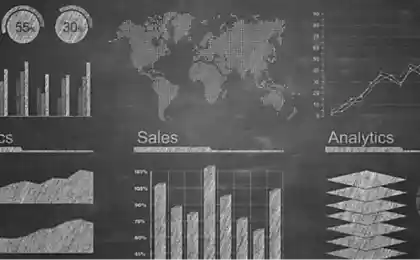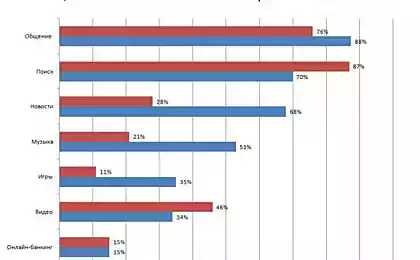8 algorithms that govern our world
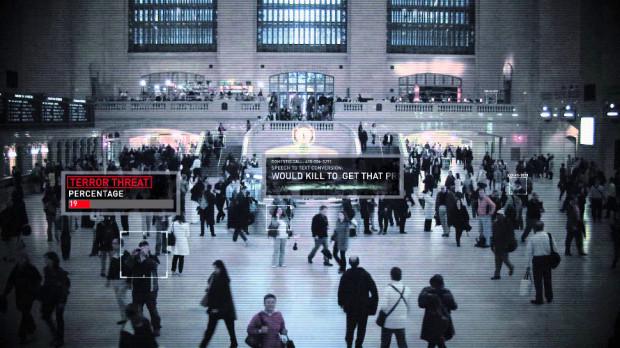
Today, the value of the algorithms in our lives can not be exaggerated. They are used everywhere - from financial institutions to online dating sites. But some algorithms shape and govern the world more than others - and they are the most significant.
Before I begin, let us something to refresh your memory. Since there is no official definition, programmers describe algorithms as a set of rules or a specific sequence of operations. This is a series of instructions that tells the computer how the problem should be resolved or achieved a certain goal.
1. Search Google
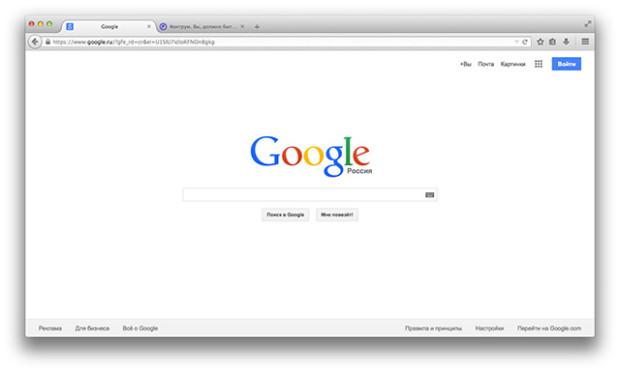
More recently, there was a time when search engines fought for supremacy in the internet. But then came Google with its innovative algorithm PageRank.
Today, in the United States in an Internet search Google are 66, 7% of cases, followed by Microsoft (18, 1%), Yahoo (11, 2%), Ask (2, 6%) and AOL (1, 4% ). Google dominates the market, without a doubt, and for many of us it is the main road to the Internet.
PageRank works with a program called spiders, and a large list of keywords, as well as their location. The algorithm works by estimating the quantity and quality of links to a page to get a rough estimate of how important each site.
The basic idea is that the more important or more valuable site, the more likely that he will get more links from other sites. In fact, it is a popularity contest. In addition, the PageRank algorithm reads the sequence and location of keywords on a page and how long this page exists.
2. Newsline Feysbuka

We certainly do not want to admit it, but the newsfeed of Facebook - is a "place" where each of us like to spend time. And if you configure it so you can see all actions and updates of all your friends in chronological order, you will receive a predetermined range of items that the algorithm of Facebook has chosen for you.
To calculate what content is most interesting, it takes into account several factors such as the number of comments, "who posted a" story (yes, there is the internal distribution in the "popular" people and those with whom you most interacting), and what type it post (photos, videos, status updates, and so on. d.).
3. "You may also like ..."
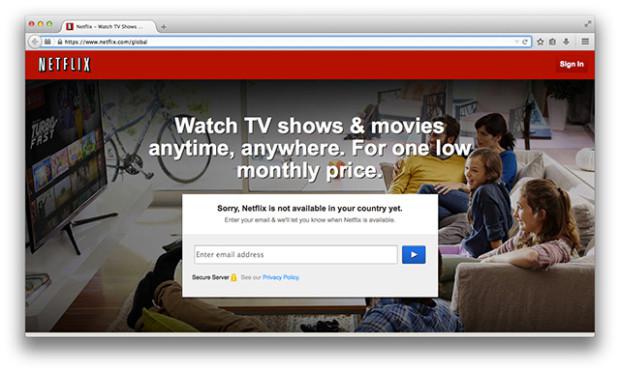
These sites and services, like Amazon and Netflix watching the books that we buy, and the films that we see online, and offer similar options, based on our habits.
As with any automatic process, this ubiquitous feature XXI-st century has its own advantages and disadvantages. While it can be extremely useful for the preparation of such recommendations, as it can effectively pass the target - particularly after the order children's book for a gift three-year daughter.
Indeed, together with a PageRank and news feeds of Facebook, these algorithms create what is called a filter bubble - this phenomenon, because of which people are separated from information that is not consistent with their point of view. This may be the result of what Eli Pariser calls informational determinism: our past Internet habits determine our future.
4. Google AdWords
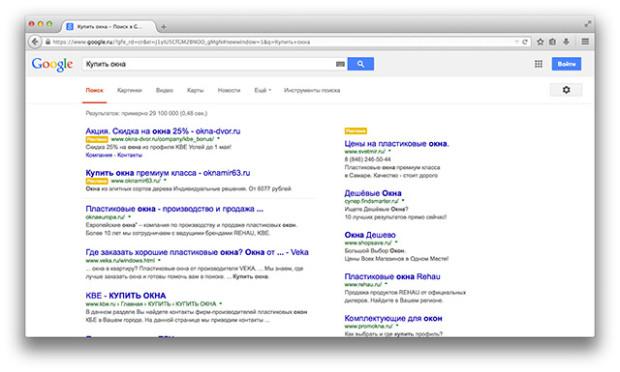
Google, facebook and other sites to track your actions and words used search queries to provide contextual advertising. Google AdWords, bringing the company's main income, is based on this model, while facebook is struggling to get it to work (when the last time you clicked on an advertisement in facebook?).
5. Internet treyding
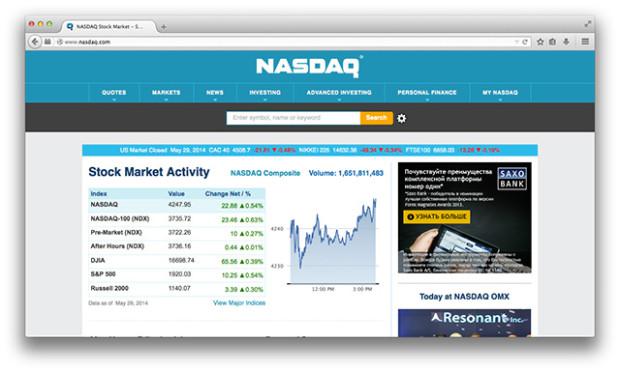
The financial sector is a long time uses algorithms to predict fluctuations in the market, but they are also used in spreading the practice of online trading. This form of rapid-trading shares includes algorithms, otherwise known as bots that can make decisions in milliseconds. In contrast, for the human to recognize and react to potential danger, leaves at least one entire second. As a result, the person is out of the sales cycle - and an entirely new digital environment evolves.
But sometimes, these algorithms are wrong. Leo Hickman explains:
«Let's remember Black Tuesday May 6, 2010, the year when the industrial Dow Jones index fell to 1000 points in a few minutes, just to see how the market will recover in 20 minutes. The reason for the sudden fall and has not been fully explained, but most financial analysts accused of "race to the bottom" competitive quantitative trading algorithms (quanta), is widely used to represent the Internet trading. Scott Patterson, a reporter for "Wall Street Journal" and author of "Quantum", compares the use of algorithms on the trading floors with the plane on autopilot. The vast majority of trades are conducted nowadays algorithms, but when something goes wrong, as in the Black Tuesday, may interfere with people ».
blockquote> 6. Compression MP3
The algorithm compresses the data - it is an integral and key aspect of the digital world. We want to get our data quickly while maintaining the free space on the hard disk. Serve this purpose various methods of data compression and transmission.
In 1991, for example, Cisco Systems developed the protocol RTP (CRTP), and in 1987, German researchers reported today the ubiquitous MP3, compression scheme, reduces the size of audio files to 1/10 of its original size. This compression scheme has revolutionized the music industry, whatever it was.
7. CRUSH by IBM
This algorithm is not dominated in our world, but it probably will be soon. A growing number of police departments using a new technology known as mining.
In 2010, it was announced that the program Mining IBM (called CRUSH, it is possible to transcribe and translate as a reduction in criminal offenses with the use of statistical history) management Memphis police reduced the number of serious crimes more than 30%, including reducing the number of serious crimes 15% from the 2006 year. Inspired other cities in Poland, Israel and the UK have a program note. Pilot projects are being carried out in Los Angeles, Santa Cruz and Charleston.
The program works through a combination of aggregate data, statistical analysis, and of course, the advanced algorithms. This allows the police to assess the model of accidents around the city, and to predict the occurrence of crime "hot spots" in order to "quickly allocate resources and deploy personnel, which will increase the efficiency and safety of citizens».
In the future, these systems everywhere will take over the job of analysts. Criminals will be tracked sophisticated algorithms, monitoring the Internet activity, GPS, PDAs, biosignatures and all contacts in real time. Increase the use of unmanned aerial vehicles to monitor potential offenders that can predict the intentions of the person based on his movements and other visual cues.
8. Avtotyun
Finally, a joke: autotuner used constantly working on algorithms. This device sets a sequence of commands, slightly leaning tone of voice or instrument to the nearest semitone. Interestingly, the algorithm developed by Annie Hildebrand from the company Exxon, which was initially used it for seismic data processing.
«Believe» Cher is considered the first pop song, processed using auto-tuning:
via factroom.ru




